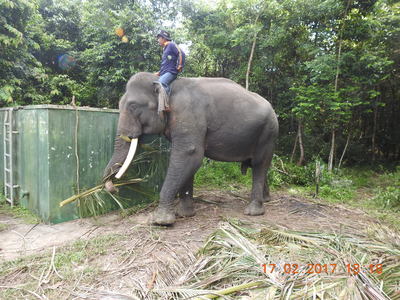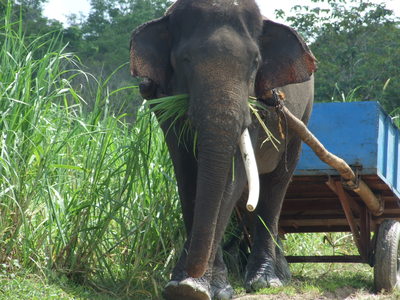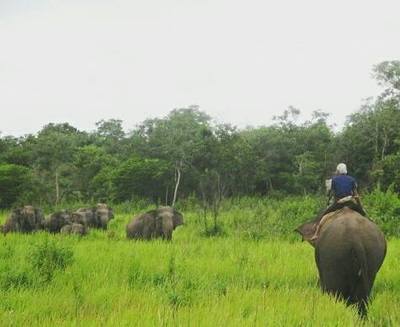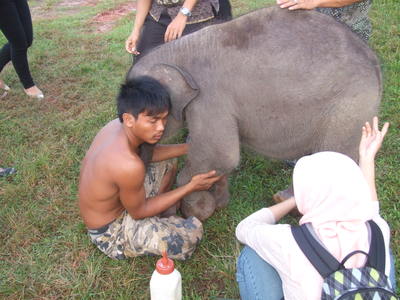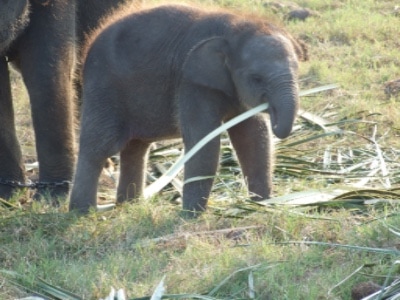Elephant Food Farm
A grass roots project with multiple positive outcomes
The magnificent and critically endangered Sumatran elephant has lost 70% of its natural habitat in the past 25 years. As a result, the population of this species is numbered at less than 1,000 and there are only two stable populations left in the wild. Protection and ongoing management of the remaining population is a complex and multi-layered issue.
Although the Indonesian Government has established a network of national park areas, groups of wild elephants still raid village farms bordering onto national parks, creating local conflict.
Village farmers, most of whom can hardly sustain themselves and their families, are understandably resentful. Wild elephants tempted out of the forest by the scent of crops near to harvesting time are still maimed or fatally injured. Poachers from local villages and further afield still burn vast areas of pristine rainforest, seek to steal elephant ivory, and kill other endangered species for food.
Although the Indonesian Government has established a network of national park areas, groups of wild elephants still raid village farms bordering onto national parks, creating local conflict.
Village farmers, most of whom can hardly sustain themselves and their families, are understandably resentful. Wild elephants tempted out of the forest by the scent of crops near to harvesting time are still maimed or fatally injured. Poachers from local villages and further afield still burn vast areas of pristine rainforest, seek to steal elephant ivory, and kill other endangered species for food.
Elephant Conservation Centre
At the Way Kambas National Park young elephants injured or orphaned in these conflict areas are taken to the Elephant Conservation Centre (ECC) where the government employs a carer or ‘mahout’ to look after each elephant for the duration of its life.
Once rescued and in human care, these elephants can no longer be successfully released back into the wild. They become accustomed to human contact and bonded to their mahouts.
Once rescued and in human care, these elephants can no longer be successfully released back into the wild. They become accustomed to human contact and bonded to their mahouts.
The Indonesian Government recognises the tourism potential of an ECC where elephants and humans interact, and has undertaken to fund their care ongoing. This can only be successful if elephant health issues are addressed sustainably and urgently. The budget for this is tight, and there are real shortfalls in the provision of elephant health management.
